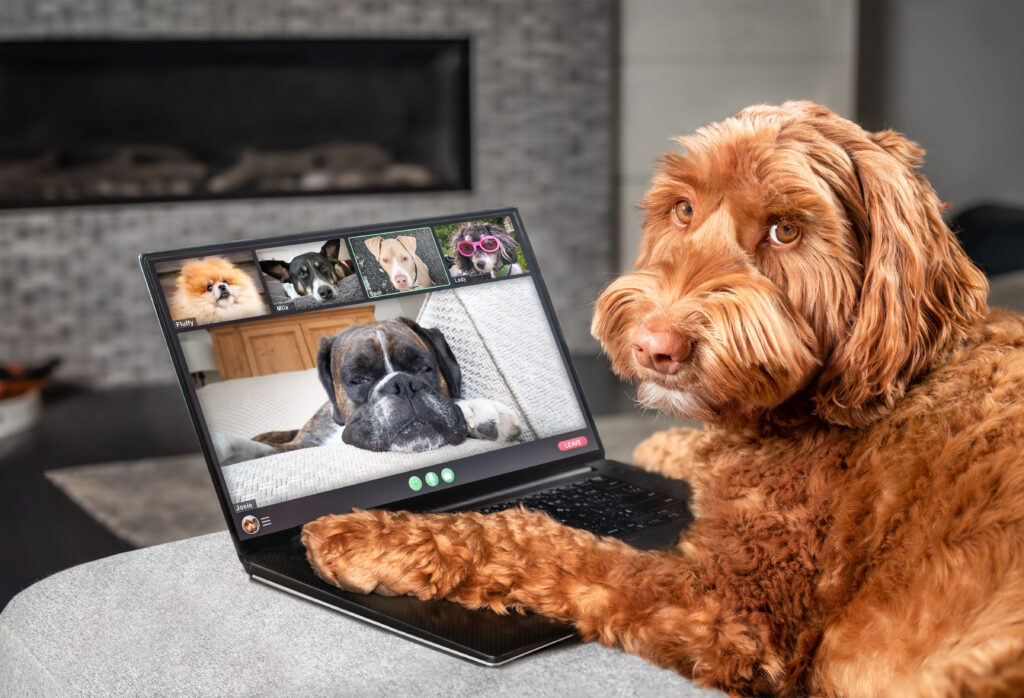The internet, of course. But that creates a new challenge – how do you sort through the huge number of businesses that Google brings up? Which ones are the types of businesses you would want to support? And are they really Australian and/or local?
In my years as a business journalist, I’ve written about probably thousands of businesses. And for each one I’ve written about, I’ve been pitched 10 more by marketers and PR agencies keen to spruik their wares.
I’ve then gone on to launch my own businesses – including Paws N’ All – and have (and continue to) trawl through a mountain of product makers and sellers to find genuinely authentic Australian designed and made products that aren’t mass-produced.
Combining both of these forms of experience, I’ve probably got more experience than most in deciphering the fake from the real deal.
So, what makes a genuine Aussie small business stand out from the rest? There are a few things to look out for:
1. You can see who owns and operates them
A business with nothing to hide will put its people out there.
The owners/founders of a small business are usually mentioned by name on the business’ website. And most will have a photo of them too. These people ARE the business, and they aren’t afraid to say so.
It’s a big difference from international companies and large corporations, where the closest you find to a person working in the business is a chatbot with a human name.
2. Their teams are real people
Genuine businesses also include their staff – on their site, the company’s LinkedIn profile, social media pages, everything!
A business that isn’t really local can’t put names to it, because it’s too easy to catch them out in a lie.
3. They clearly explain what they do
I can’t tell you how many times I’ve looked up a company and struggled to find out what it is they actually do. It’s all “industry leaders” and “experts” who, for all you know, are just as likely to sell used cars or carbon credits as they are say pet food makers.
A small Aussie business will generally say – loudly and proudly – “we do this”.
4. Their job titles make sense
What on earth is a “Chief Success Officer”? What business does a “Business Analyst” actually analyse? Is a “Solutions Manager” really the only person on the payroll capable of solving problems?
A genuine small business is usually too busy actually working for their customers to dream up long-winded job descriptions. Fair dinkum.
5. They work with other businesses
This is actually a really good test of character. Anyone can sell – the likes of Ebay, Gumtree and Facebook Marketplace make sellers of everyone. But a real business deals with other businesses.
It might be that they sell to other businesses rather than individual consumers. Or they buy supplies/ingredients from another business to make their own products.
Even while working as a freelance writer – a sole-trader – I dealt with other businesses: the PR firms that sent me information, the media outlets and companies that bought my work, the businesspeople I interviewed.
A legitimate and trustworthy business will have other businesses (and businesspeople) that can vouch for it. Offshore companies will struggle to do so using local connections.
6. It’s easy to contact them
A rule of thumb I find pretty reliable: you can usually determine the size of the business by how easy it is to contact them.
Big businesses try to centralise everything, so they funnel you down to a single contact point – a generic phone number (either a 1800 or 13 number) or a contact form on their website. You have no idea where they are, who will answer, or when they will reply.
Small businesses, however, are generally bursting at the seams to find ways to connect with you. They typically have:
- mobile numbers and email addresses listed on their website.
- live chat options.
- links to their various social media accounts, so you can find and message the owners on LinkedIn, Facebook, Instagram etc.
- and, if they have a shopfront, their address is front and centre.
Small businesses want to talk to you, and they’re willing to do it through whichever contact method you prefer.
(Interestingly, the old rule of thumb was that a genuine business had a fixed phone line. But with everyone using mobiles nowadays, the reverse is now true. Particularly in the case of small businesses, landlines have become an unnecessary cost. Besides, a mobile generally goes wherever its owner does, meaning you’re far more likely to have someone answer your call!)
7. They charge a fair price
Unless you’ve actually run a business yourself, it’s easy to misunderstand just how much it actually costs to run a business.
Even before you start trading, you need business licences and registrations, insurances (public liability, asset protection, income protection for the founder etc.) and the like. They’re all essential – most are mandatory.
Then the business may need premises from which to operate, its own website and web-hosting, payment platforms to accept payment from customers, and utilities (especially phone, power and internet).
Next comes stock or supplies, other equipment (furniture, phones, computers, printers, cash registers etc.). It will also need software (payroll, invoicing, data management, social media management, inventory control etc.), subscriptions, and professional/industry memberships.
Then the business needs people to operate it, whether it employs them directly or as outsourced freelancers/contractors. That includes someone to run its website, service its customers, build its products, manage its finances, oversee its taxes, ensure it stays legal, and keep its systems online.
Once all of this is in place, then the business needs to find customers – so it pays for advertising, social media marketing, events, sponsorships, promotions, giveaways, PR for media coverage etc.
Only when all of these things (and many others which I haven’t already mentioned, like business loans, patents and trademarks, professional qualifications, storage space, credit card readers, data security programs, merchandise, packaging, recruitment, staff training, legal oversight, compliance and more) are in place can the business actually begin to trade. That all costs money!
So, if you’re being offered, say, a jewel-encrusted pet collar for $20 or a chewy treat for loose change, you can pretty much count on one of three things:
- The product/service is a scam or not of the quality it claims to be;
- It comes from overseas, where exchange rates and pricing factors are different; or
- It’s being sold by a business large enough to afford taking a hit just to get you in the door, so it can then sell you other things at full price.
A genuine local Aussie business has high overheads, so it needs to charge a certain price to be able to make any money at all after all those costs are paid for. That’s what keeps more Australians in work and, for the most part, gives our pets the quality and comfort they deserve!













